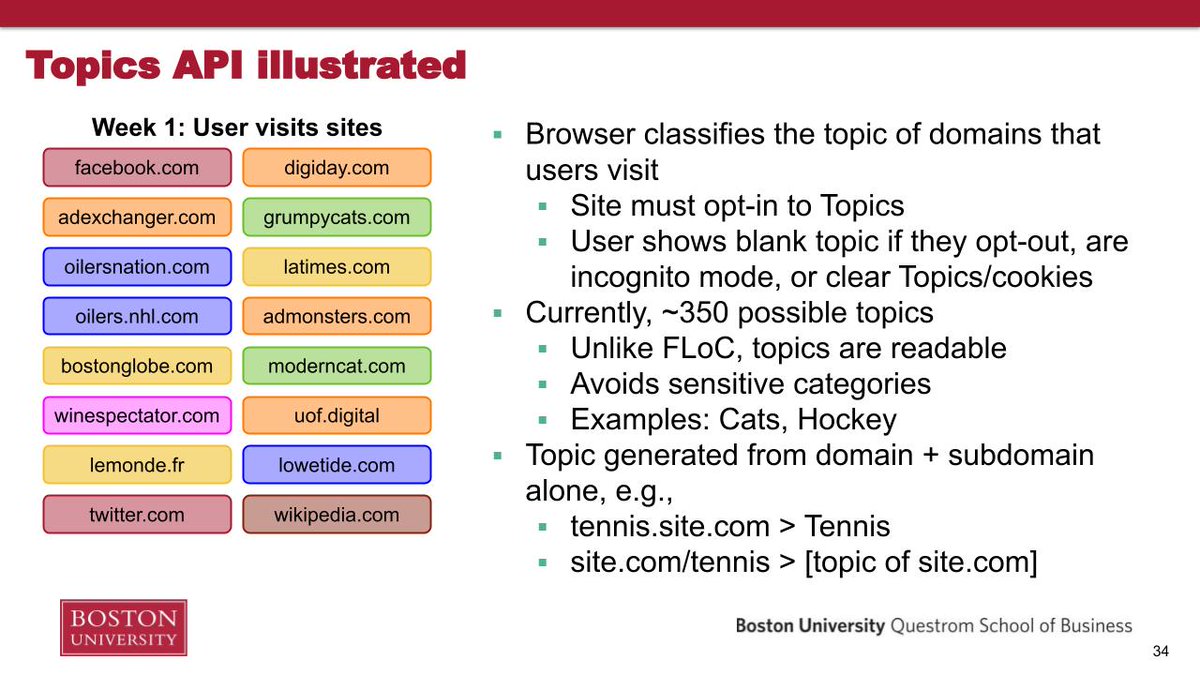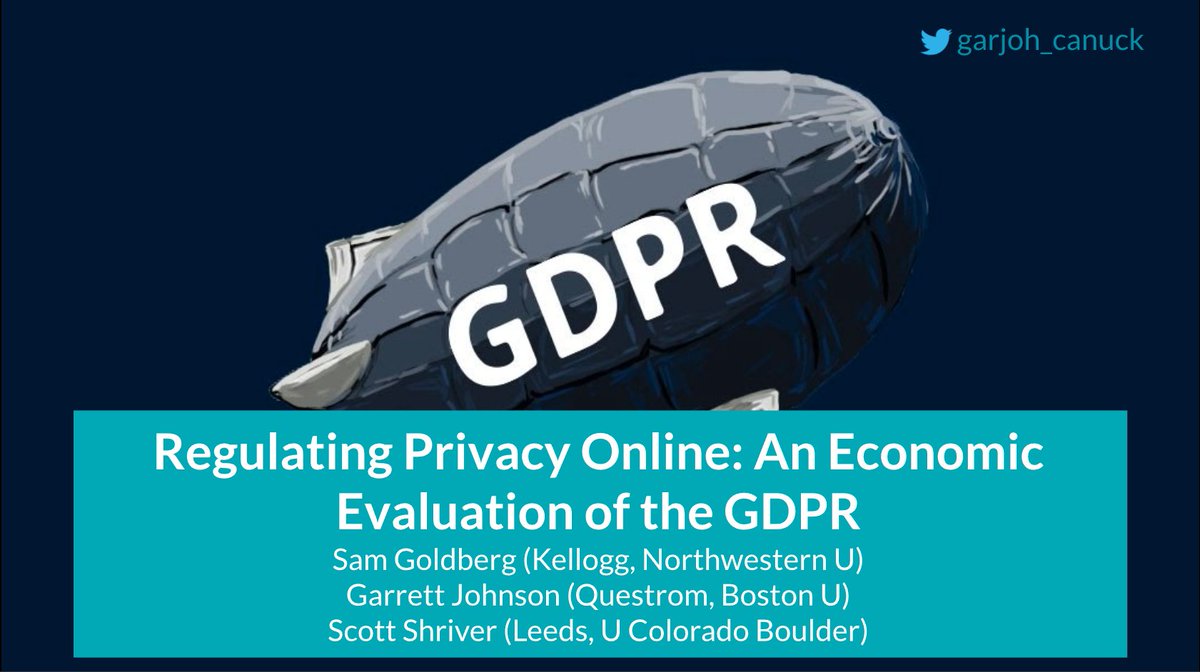🚨Working paper update!🚨
What is the impact of strict #privacy regulation on content supply and demand?
In Sept 2019, YouTube paid a record $170M to settle charges it violated children’s privacy law (#COPPA). We use this to study the "privacy-for-content" tradeoff. 1/11
What is the impact of strict #privacy regulation on content supply and demand?
In Sept 2019, YouTube paid a record $170M to settle charges it violated children’s privacy law (#COPPA). We use this to study the "privacy-for-content" tradeoff. 1/11

Beginning Jan 2020, YouTube identified kids content and eliminated all related personalization including: personalized ads, search, content recommendations, & commenting.
This matches FTC's proposed rules to strengthen COPPA announced yesterday: 2/ bit.ly/3RMARdf

This matches FTC's proposed rules to strengthen COPPA announced yesterday: 2/ bit.ly/3RMARdf

YouTube creators worried these changes amounted to the "COPPAcalypse."
We study 5,066 top U.S. YouTube channels by comparing child-directed content creators to their non-child-directed counterparts using a difference-in-differences design. 3/
We study 5,066 top U.S. YouTube channels by comparing child-directed content creators to their non-child-directed counterparts using a difference-in-differences design. 3/

We show child-directed content creators produce 18% less content and pivot towards producing non-child-directed content.
Ad price data is not public, but one creator shared with us that ad prices fell 73% without personalized ads. 4/
Ad price data is not public, but one creator shared with us that ad prices fell 73% without personalized ads. 4/

🚨New result #1🚨 Child-directed channels also reduced their share of original content by 11% (7.7 p.p.): e.g., by creating compilations of old content.
We quantify duplicate content using video transcripts to identify chunks of text that appear in a channel's prior releases. 5/


We quantify duplicate content using video transcripts to identify chunks of text that appear in a channel's prior releases. 5/


🚨New result #2🚨 Child-directed channels reduce their share of manual captioning by 26% (3.8 p.p.). Manual captions reduce errors in automated captions. Captioning helps viewers who are hard of hearing & helps children learn vocabulary & reading. 6/
The original content & manual captioning results suggest that child-directed channels invest less in quality. We also find user ratings (like/view ratio) falls 10% reflecting this & YouTube's degraded capacity to match viewers to content. 7/ 

On the demand side, views of child-directed channels fell by 20% & channel subscriptions fall 25%.
We emphasize that our data consists of channels in the education, entertainment, & film + animation verticals. Impact on educational channels is similar. 8/
We emphasize that our data consists of channels in the education, entertainment, & film + animation verticals. Impact on educational channels is similar. 8/

Consistent with the YouTube's degraded capacity to match viewers to content, we find that content creation (L) and especially content views (R) become more concentrated among large child-directed YouTube channels. 9/




FTC wants stronger #COPPA, EU’s #DSA bans personalized ads for kids <18 & proposed COPPA 2.0 raises age from 13 to 16.
The social benefit of kids’ privacy may exceed the cost to content supply & demand, but regulators should keep this in mind. 10/
The social benefit of kids’ privacy may exceed the cost to content supply & demand, but regulators should keep this in mind. 10/
Read the paper here: "COPPAcalypse? The YouTube settlement’s impact on kids content” w/ @TesaryLin, James Cooper, & Liang Zhong
➡️ END ssrn.com/abstract=44303…

➡️ END ssrn.com/abstract=44303…

@TesaryLin @threadreaderapp please unroll
• • •
Missing some Tweet in this thread? You can try to
force a refresh













